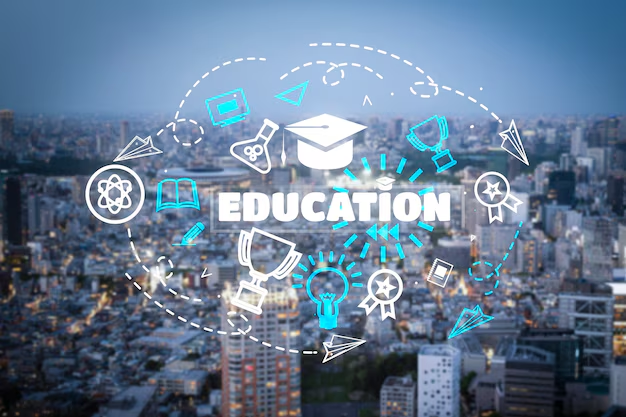Education has long been recognized as the cornerstone of personal growth and societal progress. It is more than just a tool for acquiring knowledge—education is a pathway to empowerment. When individuals are educated, they gain the skills, confidence, and resources necessary to shape their own futures and contribute meaningfully to their communities. The transformative power of education not only opens doors to economic opportunities but also helps to break down social barriers, fostering equity and justice. In this article, we explore how education serves as a foundation for empowerment and success, both on an individual and societal level.
The Role of Education in Personal Empowerment
At its core, education provides individuals with the tools they need to navigate the world. Whether it is learning basic literacy or mastering complex professional skills, education empowers people to take control of their lives.
- Confidence and Self-Esteem
Education boosts self-confidence by helping individuals gain knowledge and skills that make them more competent in various areas of life. With education comes the ability to engage in informed decision-making, which builds a person’s sense of control over their own future. - Critical Thinking and Problem-Solving
Education fosters critical thinking and problem-solving abilities. These skills allow individuals to analyze situations, make thoughtful decisions, and create solutions to challenges they encounter. In turn, this leads to greater independence, enabling individuals to advocate for themselves and their communities. - Economic Empowerment
Education is one of the most powerful tools for economic mobility. It opens the door to employment opportunities, especially in sectors that demand skilled workers. As individuals gain access to higher-paying jobs, their ability to support themselves and their families increases, which creates a ripple effect of economic prosperity. Education helps lift individuals out of poverty, reducing economic inequality in the long term. - Increased Health and Well-being
Studies have shown that educated individuals tend to have better health outcomes. Education enables people to make more informed choices about their lifestyle, healthcare, and diet. Additionally, educated people are more likely to access healthcare resources and adopt healthy behaviors, which leads to improved quality of life.
The Societal Impact of Education and Empowerment
While education plays an essential role in individual empowerment, its societal impact is just as profound. When communities invest in education, they foster social cohesion, reduce inequality, and pave the way for greater economic development.
- Reduction of Inequality
Education helps bridge the gap between different social classes, providing individuals from marginalized communities with opportunities they might otherwise not have. For example, empowering women through education has been shown to reduce gender inequality by enabling them to participate fully in the workforce, politics, and family decision-making. This leads to more equal societies where everyone has a chance to succeed. - Social Mobility
When education is accessible to all, it creates a more dynamic and mobile society. People from different socioeconomic backgrounds can rise above their circumstances and pursue their goals. Education allows for the development of a diverse range of talents, which enriches the workforce and contributes to the growth of industries. - Promoting Tolerance and Understanding
Educated individuals are more likely to be open-minded and tolerant of diversity. Education encourages empathy and helps individuals to understand the experiences of others, fostering a sense of community and shared purpose. This is especially important in increasingly diverse societies, where social cohesion is vital for progress and stability. - Building a Knowledge Economy
A society’s economic growth is often linked to its educational infrastructure. A skilled and educated workforce drives innovation, increases productivity, and enhances a country’s competitiveness on the global stage. By investing in education, nations can build a robust economy based on knowledge, research, and technological advancement.
Education and Empowerment for All: Barriers and Solutions
Despite the clear connection between education and empowerment, significant barriers still exist. Access to education remains a challenge for many, particularly in low-income countries and marginalized communities. These barriers include financial constraints, gender-based discrimination, and lack of infrastructure. However, through targeted efforts and innovative solutions, these challenges can be overcome.
- Affordable Education
One of the most significant barriers to education is cost. In many regions, families are unable to afford tuition fees, uniforms, or transportation to school. To address this, governments and organizations must ensure that education is free and accessible at all levels, with scholarships and financial aid programs for those in need. - Gender Equality in Education
Gender inequality continues to be a major obstacle to education, particularly for girls. In many parts of the world, cultural norms restrict girls’ access to education. Empowering women through education is critical for achieving gender equality, and it requires concerted efforts to eliminate these societal barriers. Community awareness campaigns and legal reforms can help ensure that girls and boys have equal access to education. - Improving Infrastructure
In rural areas, access to education is often limited due to poor infrastructure. Schools may be far away, and transportation can be dangerous or nonexistent. Governments need to invest in building schools and improving infrastructure in underserved areas, while utilizing technology to provide distance learning options where physical classrooms are impractical. - Inclusive Education for All
Education must be inclusive of all learners, including those with disabilities and special needs. Schools must provide adequate resources, specialized teachers, and adaptive technologies to ensure that all students can succeed. Inclusive education empowers all individuals, regardless of ability, to lead fulfilling lives and contribute to society.
FAQs on Education and Empowerment
- How does education empower individuals? Education empowers individuals by giving them knowledge, critical thinking skills, and the ability to make informed decisions, leading to greater self-confidence and independence.
- What is the relationship between education and economic empowerment? Education provides individuals with the skills needed to access higher-paying jobs, improving their financial stability and contributing to overall economic development.
- How does education reduce inequality? Education offers equal opportunities for people from all backgrounds to improve their lives, reducing social and economic disparities and promoting gender equality.
- Can education improve health outcomes? Yes, education leads to better health outcomes by helping individuals make informed choices regarding diet, healthcare, and lifestyle.
- How does education contribute to societal development? Educated individuals contribute to economic growth, innovation, and social cohesion, fostering a more stable and prosperous society.
- What barriers exist to accessing education? Barriers to education include cost, gender inequality, poor infrastructure, and lack of access for individuals with disabilities.
- How can we make education accessible to everyone? Governments and organizations must invest in making education affordable, inclusive, and accessible through scholarships, infrastructure development, and legal reforms.
Conclusion
Education is a fundamental tool for empowerment, providing individuals with the skills, knowledge, and confidence to succeed. On a broader scale, education plays a vital role in reducing inequality, fostering economic growth, and promoting social cohesion. By investing in accessible, high-quality education for all, societies can build a strong foundation for success that benefits individuals, communities, and nations as a whole.
Key Takeaways
- Education empowers individuals by providing knowledge, confidence, and the ability to make informed decisions.
- Education reduces inequality, promotes social mobility, and fosters economic growth.
- Barriers to education, such as cost and gender inequality, must be addressed to ensure that everyone has access to learning opportunities.
- Inclusive education and infrastructure improvements are essential for empowering marginalized communities and ensuring that education is accessible to all.



